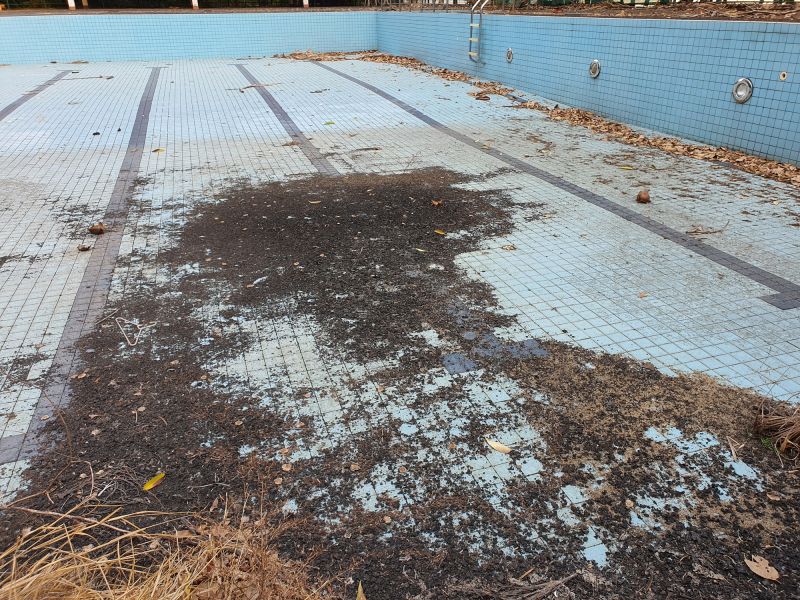Expert Picks For Pool Demolition Equipment You Need Today
Find the top-performing products favored by professionals for their durability, power, and ease of use in pool removal tasks.
 Demolishing a swimming pool is a significant project that requires careful planning and the right tools to ensure safety and efficiency. Whether the pool is outdated, damaged beyond repair, or simply no longer needed, selecting appropriate products can streamline the demolition process. From heavy-duty equipment to specialized tools, the right selection can help minimize mess and reduce the time required for the project. It is important to understand the different types of products available to match the specific needs of your demolition site.
Demolishing a swimming pool is a significant project that requires careful planning and the right tools to ensure safety and efficiency. Whether the pool is outdated, damaged beyond repair, or simply no longer needed, selecting appropriate products can streamline the demolition process. From heavy-duty equipment to specialized tools, the right selection can help minimize mess and reduce the time required for the project. It is important to understand the different types of products available to match the specific needs of your demolition site.
Top Overall Option
Heavy-Duty Demolition Hammer
A versatile demolition hammer designed for breaking concrete and tough materials commonly found in pool structures. It offers high power with adjustable settings, making it suitable for various pool demolition tasks. Its ergonomic design helps reduce fatigue during extended use, and its durability ensures it can handle multiple projects. This tool is ideal for efficiently breaking down pool shells, removing debris, and preparing the site for further work.
Types of Products For Pool Demolitions
Hydraulic Breakers
Powerful hydraulic tools that deliver controlled force to break through concrete and other hard materials in pools.
Jackhammers
Handheld or pneumatic jackhammers ideal for breaking concrete and removing pool shells with precision.
Sledgehammers
Traditional manual tools for breaking smaller sections or for use in areas requiring delicate handling.
Concrete Saws
Heavy-duty saws equipped with diamond blades for cutting through pool walls and floors efficiently.
Excavators with Demolition Attachments
Heavy machinery fitted with hydraulic arms and attachments for large-scale pool demolition projects.
Skid Steer Loaders
Compact loaders with specialized attachments like breakers and buckets for debris removal and partial demolition.
Debris Removal Buckets
Buckets designed for efficient collection and removal of broken pool materials and debris.
Water Blasters
High-pressure water tools that can be used to loosen materials before breaking or to clean the site afterward.
Protective Gear
Safety equipment including helmets, gloves, goggles, and respirators essential for safe demolition operations.
Utility Wrecking Bars
Heavy-duty bars used for prying apart sections of pool structures and removing debris.
Portable Generators
Reliable power sources for operating electric tools in remote or outdoor demolition sites.
Dust Extraction Systems
Equipment designed to capture dust and debris generated during cutting and breaking activities.
Vacuum Attachments
Industrial vacuums and attachments for cleaning up fine debris and dust post-demolition.
Water Removal Pumps
Pumps suitable for draining residual water from pools before demolition begins.
Popular Choices
Widely used for their portability and ease of use in breaking concrete and pool shells.
Commonly favored for their power and efficiency in larger demolition projects involving concrete.
Popular among professionals for their high force and precision in breaking tough materials.
Versatile equipment often used for both demolition and debris management on large sites.
Frequent choice for precise cuts in pool walls and floors during demolition.
A common manual tool for breaking smaller sections or for use in tight spaces.
Popular for loosening materials and cleaning the site after demolition.
Frequently used for efficient cleanup of broken materials and debris.
Essential for powering electric tools in remote demolition areas.
Always recommended for ensuring safety during demolition activities.
Popular for maintaining a clean work environment by removing dust and small debris.
The process typically involves breaking down the pool structure, removing debris, and preparing the site for future use or landscaping. Safety should always be a priority, so products that offer control and stability are highly recommended. Proper protective gear, together with suitable demolition tools, can make the task safer and more manageable. Additionally, some products are designed to handle different pool materials such as concrete, fiberglass, or vinyl, so choosing the right equipment according to the pool's composition is crucial.
Understanding the scope of the demolition project can also influence product selection. Smaller residential pools may require less intensive tools, while larger commercial or in-ground pools might necessitate heavy machinery. Planning ahead and selecting the right equipment can help prevent delays and potential safety hazards. Whether you're a DIY enthusiast or a professional contractor, having a well-stocked toolkit tailored for pool demolition is essential for a smooth operation.
Key Buying Considerations
- Type of pool material (concrete, fiberglass, vinyl) to select suitable tools.
- Scale of demolition project to determine the necessary equipment size and power.
- Safety features and protective gear included or recommended for use.
- Power source availability (electric, pneumatic, hydraulic) at the work site.
- Ease of use and ergonomic design to reduce operator fatigue.
- Durability and build quality for repeated or heavy-duty use.
- Compatibility of attachments and accessories with existing equipment.
- Noise levels and vibration to consider for safety and comfort.
- Mobility and portability of equipment for maneuvering in tight spaces.
- Availability of replacement parts and ongoing maintenance support.
- Environmental conditions, such as weather or site accessibility, influencing equipment choice.
- Budget constraints balanced with the quality and functionality of tools.
- Local regulations or permits related to demolition activities.
- Training or experience required to operate specialized equipment safely.
This page contains affiliate links. We may earn a commission from qualifying purchases made through these links to support ongoing content creation.
